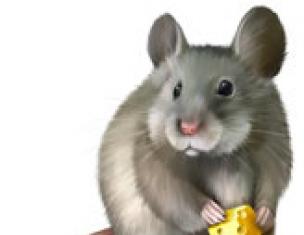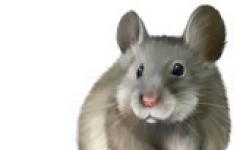Industrial laundry detergents often have adverse effects on people with allergies and young children. Many do not want to use them so as not to pollute the nature, especially if it is a summer cottage wash or near a pond. If you are interested in the question, how to replace washing powder, take advantage of natural safe means suitable for both hand and machine wash.
Alternative washing without using detergent
To remove residues of industrial detergents and ensure a favorable transition to a harmless alternative, it is necessary to wash clothes in hot water with the addition of 50 ml of washing soda. The temperature regime is selected depending on the type of fabric.
It is not difficult to prepare a special gel for ecological washing. To do this, dissolve 50 g of soap shavings in 1 liter of boiling water, then remove the container from the heat and add 50 g of soda ash, let cool. This gel washes perfectly all types of laundry and does not foam, it is recommended for pre-soaking. Everything is very simple!


There is a detergent powder recipe available. Take 250 ml of soap grated on a coarse grater, 125 g each of borax and washing soda, mix all the components thoroughly. Store the resulting composition in a special container and use 125 g each for machine wash.

Mustard
Mustard powder has long been used as an alternative remedy for removing greasy stains, washing dishes, and washing silk and woolen items. In addition, its bactericidal properties help in the fight against diseases of various plants.

Mustard powder for washing
The tool has shown itself well in machine wash. 50 g of mustard is poured into a powder container so that it does not brew, a temperature regime of no more than 40 degrees is used.
Important information! In the presence of strong and persistent dirt, it is recommended to first apply a mushy composition of mustard powder and heated water to problem areas, and after 20-30 minutes send the item to the wash.
Salt for washing clothes from linen and chintz
This option is suitable for washing lightly soiled items. However, they do not lose their brightness and last much longer. To use the tool, follow these steps:
- prepare a saline solution at the rate of 1 tbsp. l. salt for every liter of liquid;
- soak things in it for 1-2 hours, then wash;
- rinse and dry.
Important! Before washing, be sure to assess the degree of soiling, put aside heavily soiled items and wash with a more effective detergent.
Beans - how to wash
You can replace the powder with a bean broth; it is used for washing woolen fabrics. Boil 200 g of beans in 1 liter of water, strain the broth, pour into a container with heated water and stir. Wash the product in it, then rinse in vinegar solution and dry.
Horse chestnut
Another option natural wash is the use of horse chestnut. The brown skin is removed from the collected fruits, dried and ground in a coffee grinder.
Horse chestnut for washing
The resulting composition is poured with well-heated water and stirred, foam is formed no worse than from the usual powder. For greater effect, the product is first soaked in chestnut water, and then washed in it. The product can also be added for machine washing.
Soap nuts
This recently appeared tool has already gained popularity. It is suitable for all fabrics, just put them in a canvas bag and throw them in the washing machine along with dirty things.

Soap nuts
There are many ways of washing without the use of industrial compounds, which help us to live in harmony with nature, to protect our own health and our children.
Content
Washing powder contains a lot of components that can harm the skin and internal organs person. Therefore, the housewives, who are concerned about the health of their relatives, at some point face the question of what can be replaced.
Powder harm
Thanks to the surfactants present in the composition of the washing powder, the oxidation-reduction processes are slowed down. Protein, carbohydrate and fat metabolism are also impaired. Harmful components accumulate on the surface of cell membranes, which can lead to serious disruptions in biochemical processes in the human body.
- Anionic surfactants, which are part of washing powders, are especially dangerous, as they lead to damage to the lungs, liver, kidneys, and brain. They are able to provoke allergic manifestations and negatively affect immunity.
- Phosphates enhance the effect of surfactants, as a result, the latter quickly penetrate into the human blood, violate its composition, and cause serious disruptions in the immune system. Thanks to phosphates, powder particles accumulate in the fabric fibers, as a result of which it turns out that all things are impregnated with a chemical composition.
You don't want to feel the negative effects of such substances on yourself, so people began to look for what can replace the washing powder. There were many options.
Alternative to laundry detergent
In every home, there are products that can easily pass for an ecological laundry detergent, they can easily replace washing powder.
Mustard
This product is unique. Mustard does a great job with dirty dishes oily hair, old oil stains. It is also suitable as a substitute. Silk and wool items are washed especially well in "mustard water".

To prepare the product, you will need 1 liter of warm water, into which 3 small spoons (with top) of mustard are poured. Mix everything until completely dissolved. Set aside the resulting composition for 2 hours, after which the contents must be slowly, without stirring, drained into a container with hot water. The remaining thick can be reused. Clothes are washed in this composition 1-2 times. During the washing process, fresh mustard liquid must be constantly added. Finally, the laundry is thoroughly rinsed in clean water and dried.
When the wool fabrics are rinsed for the last time, 1 small spoonful of ammonia is added to the water for every liter of water. For silk fabrics - 2 teaspoons per liter of water.
Salt
Not everyone knows this, however, salt is also an excellent alternative to washing powder. She washes linen and calico clothes with particular care. Both white and colored clothes are suitable for washing in a salt composition.

Things are placed in a deep basin, and water is poured there, the volume of which must be measured accurately. After that, the clothes are thoroughly wrung out. Salt dissolves in the remaining liquid, for each liter there should be 1 large spoon. Things are put in the resulting solution for an hour. After the time has elapsed, the clothes need to be wrung out and rinsed.
Soap root
Soap root is a special remedy that can be freely purchased on the market or in pharmacies. An excellent alternative to washing powder. To wash 1 kg. linen you need 50 gr. root. This component is crushed with a hammer, poured into 0.5 liters. boiling water and left for 24 hours. While the composition is infused, it must be stirred periodically. The resulting mass must be boiled over low heat for an hour, stirring constantly. A somewhat cooled solution is filtered through cheesecloth. The residue left on the fabric can be used again for the same procedure.
Half of the soap solution formed initially must be poured into a bowl of warm water and beat until a lush foam forms. The second part will be used to wash the next batch of laundry or rewash heavily soiled items.
Horse chestnut
Horse chestnut can also replace laundry detergent. Detergent prepared on the basis of this component is equally well suited for hand washing as well as in an automatic machine.

From the collected chestnut fruits, the outer brown shell is removed (it can stain clothes), after which the product is crushed on a coffee grinder. The resulting powder is placed in a bowl and filled with hot water. Beat this composition thoroughly until foam is obtained.
Homemade Laundry Gel Recipe
For those who do not know how to replace washing powder, but really want to do it, a special washing gel, which is easy to prepare at home, is suitable.
For its preparation, it is necessary to pour 50 grams into 1 liter of boiled water. any soap previously ground on a coarse grater. The soap should dissolve. After that, the pan is removed from the heat and 45 g is added to the mixture. soda ash. The composition is thoroughly mixed and cooled.
Such a kind of washing powder does not foam at all and perfectly cleans things, especially if they are soaked beforehand. The consumption of the resulting product is approximately the same as that of washing powder.
Natural bleach
Light colored items need bleaching. Only in this way can you give the laundry a snow-white look and get rid of hard-to-remove stains.
But chlorine is not necessary for home bleaching. You can use the following recipe. To 10 liters of hot water are added 2 large tablespoons of peroxide and 1 the same spoonful of ammonia. With such a solution, it will be possible to whiten any fabrics without any problems.
Modern chemical products for washing and scenting linen contain a high level of harmful compounds, and do not always wash a thing completely. Washing powders are not suitable for allergy sufferers - the active substances in the composition most often cause severe allergies.
The safest and effective method wash things without powder - use ordinary laundry soap. With him, no more allergies - even the most sensitive skin will remain clean and will not flake off like after washing powder.
What can replace washing powder?
Ideal recipe for washing both white and colored fabrics:
For five pieces of laundry soap (three on a grater), take sodium or soda ash - five teaspoons, add 2-3 drops of any essential oil for smell. Mix the composition thoroughly and store in a large glass container. The composition perfectly cleans any stains, and does not contain harmful chemical additives.
How to use:
Pour the mixture into the washing tank;
The proportion is two tablespoons per four liters of water.
There is no need to rinse the laundry - the essential oil gives a pleasant and long-lasting aroma.
For those who do not want to waste time - a simplified version - we throw whole remnants into the powder compartment, there is also 30 gr. baking soda.
Little secrets:
Use a fine grater - it's easier to dissolve in hot water;
You do not need to add a lot of mixture so that soap stains do not remain on the fabric;
After such washing, fabrics retain their structure and color brightness for a long time.
These and other tricks and secrets can be found on the women's website 33Devitsy.ru.
You can replace expensive bleach with a simple and cheap product that will bleach towels with traces of grease. This is a regular mustard powder. A stunning effect for a minimal amount and no chemicals.
The recipe is simple:
- For a liter of boiling water, two tablespoons of mustard powder;
- Stir thoroughly until completely dissolved;
- Leave on for 20 minutes;
- Strain the solution through cheesecloth;
- Dilute with water in the required volume;
- Soak towels overnight.
- Then wash as usual. Towels will become snow-white, and the fabric will retain its original appearance. You can make washed things white without bleach by adding 100 ml of ammonia to the washing powder.
It is easy to return whiteness to yellowed sheets using ordinary potassium permanganate and household soap. Dissolve potassium permanganate separately (two or three crystals) and a tablespoon of soap shavings in two basins. Pour one solution into another, and soak sheets in it for 12 hours. Rinse thoroughly afterwards.
You can wash children's socks and knee-highs by soaking them in not hot water, adding 40 grams of boric acid there. So the socks will not only be bleached, but also disinfected - boric acid kills all germs and bacteria. After soaking, machine wash as usual.
Plain salt, which is used in food, washes perfectly linen and chintz fabrics. To remove light dirt, just take a tablespoon of salt per liter of water (hot). Soak things in the solution for an hour or two. After that, lightly chat with things in water, rub and rinse thoroughly in warm water.
You can scent things by using essential oils lavender, orange mint. Just a couple of drops and things will keep a pleasant scent for a long time.
How to replace washing powder?
After all, no matter how advertised modern facilities for washing, - and phosphates, synthesized surfactants, optical brighteners and other overly active components of washing powder do not give rest. Source: http://www.vedamost.info
I do not want to feel the negative effect of these funds on myself. The article contains information and useful tips, on how to wash and bleach things with safe natural products.
MUSTARD
Mustard is a universal remedy. And they can wash the dishes, and the head. Silk and woolen items can be washed in mustard. For 1 liter of water, take 15 grams of mustard, stir well, leave for 2-3 hours. Then drain the liquid without sediment into a bowl of hot water.
Pour the remaining mustard in the sediment with hot water, wait until it settles and drain the top again. Wash things 1 time (if heavily soiled - 2 times, each time pouring fresh "mustard" liquid). Then rinse thoroughly in clean water.
At the last rinse for woolen items, add a teaspoon of ammonia to 1 liter of water, for silk - 1 tbsp. a spoonful of vinegar in 1 liter of water.
As a washing powder for the machine:
About 50 grams per machine, everything is washed perfectly, and after washing things smell fresh, and not washing powder. It needs to be poured into the "machine" (just not into a cuvette, but immediately into linen), the temperature should not be above 40 (mustard is brewed).
In case of stubborn dirt, first apply mustard gruel to the stains and then to the machine.
Cotton does not take mustard.
Another way for woolen items:
Dilute mustard powder in warm water - soak things and wash them after half an hour. It can be washed immediately, if not heavily stained.
Woolen and silk items with greasy spots it is recommended to wash in mustard infusion. At the same time, the fabric shrinks and sheds less than when washing with detergents.
First, dry mustard (1 cup) is soaked in a little water and rubbed until a batter is obtained. It is rubbed through cheesecloth into warm (40-45 C) water (10 l) and let it brew for 2-3 hours. Wash without soap or detergents; mustard infusion is changed 2-3 times.
SALT
Surprisingly, table salt is also very good at washing things, especially chintz, linen (both colored and white). At the same time, after washing, colored items absolutely do not lose their brightness even after a large number washings.
For washing with salt, things must be folded into a basin and filled with water using a measuredmugs (you need to accurately measure how much
liters of water you will pour). Then things
squeeze out thoroughly and set aside, and in the water that remains in the basin, dilute the salt (1 tbsp. spoon with a slide for 1 liter).
After dissolving the salt, put the things back and leave them soaked for an hour. After this time, we wring out the things and rinse them. This option is suitable for lightly soiled clothing and will not help remove stains, even simple ones.
But, as you know, most summer clothes made of linen and chintz very quickly lose their attractive appearance from frequent washings. Washing with salt will help preserve the color of the fabric and its structure. Not to mention saving on washing powder and being environmentally friendly.
CALCINATED SODA
In general, for washing different fabrics, you need different compositions... Acidic and neutral environments are favorable for washing products made of animal fibers (wool, silk), alkaline ones - for washing products made of vegetable fibers (cotton, linen); moderately alkaline medium - for washing fabrics made of artificial and synthetic fibers.
Therefore, products made of cotton and linen fibers can be washed with soda ash (these are alkaline salts). It washes perfectly, even thick linen sheets - they become snow-white! Especially in washing machine(machine). But it is necessary that the washing temperature be 50-70 ° C.
But for woolen and silk fabrics this is completely unsuitable - they become tough, fragile and quickly deteriorate.
SOAP ROOT (SOAP ROOT)
It is good to wash silk and woolen items in a solution of soap root. You can buy it at a homeopathic pharmacy or on the market.
For 1 kg of dry things, you need to take 50 g of soap root, split it into small pieces, pour 0.5 liters of boiling water and leave for a day. During these days, the solution must be mixed several times. After 24 hours, the mixture must be boiled for an hour over low heat, removed, wait to settle, and strain through cheesecloth.
Pour boiling water over the root remaining on the gauze and leave for several hours. So we get another soap solution, although less concentrated, but still quite suitable for washing.
Pour the resulting soap into a bowl of warm water, beat a fluffy foam, divide into 2 portions and wash things 2 times (if things are slightly dirty, just once is enough). Then rinse clean water room temperature (to rinse a white woolen cloth, add 2 teaspoons of ammonia to the last rinse).
The soap root solution must be used immediately. You cannot store it - it quickly deteriorates.
LAUNDRY SOAP
Natural fabrics are perfectly washable and at the same time significantly softens (which is important, for example, for sliders or diapers) laundry soap.
With grated laundry soap, with the addition of a teaspoon of baking soda, it can be washed normally even in a typewriter.
For decades, our mothers and grandmothers washed with ordinary soap, and at the same time, their clothes were clean. The most suitable is laundry soap.
For washing, you need to prepare such a solution: add 50 g of grated soap and 3 tbsp. tablespoons of soda.
Dark clothes with unstable coloration can be washed without adding baking soda.
HORSE CHESTNUT
One more universal remedy from everything. These are really ordinary chestnuts.
You need to collect the nuts, remove the brown peel (because it paints things!), Dry the white core, grind it into flour (grind it on a coffee grinder). The powder is ready.
When it's time to wash, pour it into a basin and pour hot water. The foam is obtained as from a regular washing powder. Can be washed directly with this water and by hand or in a machine.
When washing by hand, to achieve the best result, you need to soak things in this "chestnut" water for an hour (or better for longer), and then wash them right there and rinse them in clean water.
BEANS
A somewhat unusual method, however, for woolen things - the very thing. And most importantly, waste-free production is obtained: we will eat the beans, and wash them in some water.
To prepare it for 1 liter of wateryou need to take 200 grams of beans, cook in a sealed container until tender. After cooking, strain the broth through clean cheesecloth, pour into a bowl of hot water, beat the foam.
After washing things, rinse them well several times in warm water, adding vinegar at the last rinse (1 tablespoon per 1 liter of water).
ASH
Ash can be used for washing, as long as it is of plant origin.
Try to avoid getting various chemical residues into the ash, for example, from various packages that do not burn, but melt.
It can be very bright modern wrapping materials, during the combustion of which various poisonous odors and abundant soot are emitted.
Whoever has a house with a stove will do the following. White linen is washed with ash from wood burning. Wrap it in cheesecloth, in several layers, tie this bag, place it in a tank with linen, which is on the stove.
While the stove is heated (for an hour or more), this whole thing is boiling on the sly. Then you wash the linen lightly, take it out, caress it, hang it out in the summer, and in the winter you can on the snow (not in the city). The sun in summer and frost in winter complete the whole process.
No powder can do that. Lingerie sparkles with cleanliness and smells fresh!
If you need to wash a few things, put a cotton cloth on top of the bucket, take the ash from the oven, sprinkle it on this cloth and carefully pour boiling water into the bucket. After some time, the ash releases alkali into the water, it remains only to remove the fabric with the ash and wash things in this water. Then rinse.
Ash alkali: white ash from burnt wood is soaked in water. The alkali passes from ash to water. After that, the ash is like a harmless (alkaline-free) fertilizer into the ground. And use water for washing (this is how our ancestors washed).
Here is another washing recipe: place birch ash in a container, pour water and insist until the water becomes soapy, then pour the water into another container so that the ash does not get into, you can strain it through a fine sieve and boil the laundry in this water.
Previously, it was the only way to wash it, it bleaches very well. Good for washing deciduous tree ashes, especially aspen.
SOAP NUTS
Soap nuts are the fruits of a plant that grows in the warm climates of eastern countries: India, Nepal, Pakistan. Mukorossi soap nuts are rightfully recognized as the best for washing, as they contain the maximum amount of saponins.
To wash 5 kg of laundry, 6-8 shells of soap nuts are enough, which are placed in a canvas bag and placed in the drum of the washing machine or in a basin with hot water.
Moreover, you can use these shells repeatedly, until they lose their bright color and stop emitting soapy water when soaked.
If you wash at temperatures below 60 degrees, you can use an infusion of soap nuts.
To obtain the infusion, pour 3-5 shells with boiling water and let it brew, then, when the water cools down, squeeze the nuts into water and pour the resulting solution (without nuts) into the washing machine or into a basin with linen.
You can use soap nuts to wash any fabrics at any temperature. At the same time, soap nuts add softness to things.
Since the product is completely natural and vegetable, the laundry does not have a smell after washing. Soap nuts perfectly dissolve fat and have bactericidal properties.
Whitening
There are natural bleaches that give your laundry a crisp white look and can help remove stubborn stains and stains.
One way to wash your white laundry:
Boil in two containers of 7 liters of water. In one container, dissolve several crystals of potassium permanganate, in another 10 grams. laundry soap. Pour both solutions together and put 2-3 things overnight. Rinse in the morning. There are no stains and the linen is snow-white.
Can be washed white linen with vegetable
oil. Proportion: 100 grams of refined vegetable oil in 3 buckets of water. All this is stirred and it is the white linen that is laid for soaking. Then rinse and that's it. And who has in the house washing machines, then they just scroll it all in the car, then rinse and dry.
You can also bleach without chlorine. For 10 liters of hot water, you can add 2 tablespoons of hydrogen peroxide and 1 tablespoon of ammonia. This solution perfectly bleaches any fabric.
White socks, knee-highs are better washed if they are pre-soaked for 1-2 hours in water, to which 1-2 tablespoons of boric acid are added. Boric acid bleaches whites better than bleach.
Whitens well White clay- kaolin, her grandmothers often mix with starch and wash white clothes.
Blue clay bleaches cotton well!
Soda is also a bleaching agent.
Ash can also serve as a bleach; to do this, boil your laundry by adding a bag of ash. This creates a lye that you can use for further washing.
Lemon juice and vinegar are good for removing stains. To do this, soak the laundry in hot water, adding 3-4 tablespoons, lemon juice or vinegar per 1 liter of water, for 15-20 minutes, then wash as usual.
If stains are on white clothing, you can apply lemon juice on the stain and leave in the sun. Rinse the laundry thoroughly before washing.
Modern laundry detergents for machine washing contain many additives. They provide reduced foaming (defoamers), good wetting and loosening of fatty, salt and mechanical impurities (surfactants - surfactants), optical brighteners and other chemical reagents, thanks to which even heavily soiled things can be washed well. But you have to pay for comfort with your health and environmental pollution.
The components of washing powders often cause allergic skin reactions and irritation of the upper respiratory tract. To cut bad influence detergents on the human body and not to destroy natural reservoirs, you have to look for how to replace the washing powder.
There are many recipes for homemade powder and liquid detergents for sustainable laundry. But it is necessary to be critical of the mixtures offered for use in automatic machines, especially when they contain strong acids or alkalis, laundry soap and crushed vegetable raw materials.
Washing without store-bought detergent
Popular homemade detergent recipes:
1. Mix 200 g of baking soda (baking soda, NaHCO3) and 200 g of borax (sodium tetraborate, Na₂B₄O₇). Use the resulting composition for washing at the rate of 30 g of powder per 2 kg of dry laundry. Dissolve in a glass of warm water and pour into the powder compartment. A program with a water temperature of 40–60 ° C is suitable. It is best to store the powder in a glass jar with a tight-fitting lid. You can add 200 g of table salt to the mixture, and pour 100 ml of 9% table vinegar into the conditioner compartment. This tool will not harm your car or ruin things.
2. Handwash without prefabricated powder well suited for delicate fabrics such as wool and silk. Stir 15 g of mustard powder in 1 liter of water and leave for 2-3 hours. The liquid is drained without stirring, and 0.5 l of warm water is added to the sediment and again infused for 2-3 hours. Then the mustard water is carefully drained, both parts of the liquid are mixed, and in the resulting infusion, products from delicate fabrics are washed. Add to the final rinse water: for wool - ammonia, and for silk - table vinegar.

3. Herbal remedies:
- a filtered decoction of soap root (soapwort), which contains saponins that form soap suds, in the old days were widely used for washing clothes;
- Indian remedy - soap nuts: they are added to machine wash water in a canvas bag, directly to the laundry in the drum;
- a decoction of white beans is suitable for washing woolen products;
- juice squeezed out of 2 kg of old potatoes, peeled and chopped on a fine grater, is diluted with warm water. It is used to wash colored woolen items, but white fabrics can turn yellow;
- the fruits of the horse chestnut are peeled from the shell, and the pulp is chopped on a grater or in a blender. The broth from the resulting shavings is suitable for washing not too dirty things made of any materials, but it does not remove complex stains. When washing in the machine, shavings from horse chestnut pulp are poured into a bag or old stocking and thrown directly into the laundry tub.
To get the best results from your eco-friendly wash, you should:
- soak the laundry in a small amount of detergent for 10-15 minutes before washing;
- set aside items with stubborn stains separately and soak them, depending on the type of pollution in cold water, with the addition of a suitable product for removing the specific type of stains;
- Household products should not be used to wash very dirty items.
Causes of malfunctions in the automatic machine when using homemade detergents:
- acids and alkalis (vinegar solution with a concentration of more than 9% and soda ash) can spoil the drain hose and rubber seals of the loading door and inside the mechanism in contact with water;
- components of economic and baby soap can settle and block holes in the drum and outlet filter, block the drain pump. This will interfere with the removal of waste water and lead to an emergency stop of the machine;
- at a water temperature of more than 40–50 ° C, mustard powder, recommended for washing wool and silk, is brewed. The resulting lumps clog the holes in the drum;
- when using soap nuts, soapwort (soap root) and chestnuts as detergents, poorly strained decoctions with pieces of vegetable raw materials or shells accidentally falling out of the bag will cause poor machine operation.
In order not to risk an expensive unit, it is better to use the listed detergents for hand washing or in semi-automatic machines, where it is possible to interfere with the process during operation.










